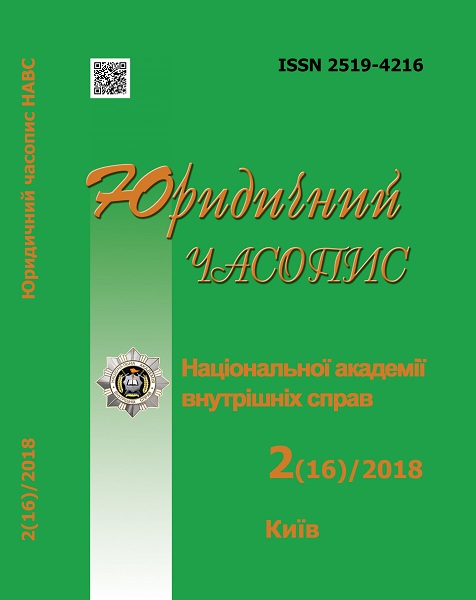The Defense of Democracy in the Czech Republic: the Arguments of Constitutional Jurisprudence
Abstract
The article is devoted to the study of the mechanism of lustration in the Czech Republic. To this end, the relevant legislation was analyzed, which established restrictions on access to posts for certain categories of persons in connection with their behavior during the totalitarian regime. Particular attention was paid to the analysis of the decision of the Constitutional Court of the Czech Republic, which resolved the question of the constitutionality of laws on lustration. It was emphasized that the Constitutional Court recognized the nature of lustration as the removal of citizens from the possibility of access to positions in state authorities, which is carried out directly on the basis of formal, categorical features, rather than by individual conviction of persons, according to the criteria established by law, based on the duty to respect democratic the principles. Each state has the right to determine the conditions for access to participation in governance and one of these conditions is loyalty to democracy. At the same time, no person is limited to access to the political function (deputies, senators). In lustration laws, there is no question of guilt and punishment. Instead, the implementation of lustration procedures will be subject to judicial review. It is concluded that the application of lustration law in the Czech Republic has had an undeniable effect on the directions, sequence and pace of systemic reforms. In addition, lustration law has solved one more problem – the protection of the rights of persons it concerns. These individuals were protected against the unlawful use of archival materials relating to them.
Downloads
Abstract views: 110 PDF Downloads: 100
Copyright (c) 2019 Law Magazine of the National Academy of Internal Affairs

This work is licensed under a Creative Commons Attribution-NonCommercial-NoDerivatives 4.0 International License.
- Authors reserve the right to authorship of their own work and transfer to the magazine the right of the first publication of this work under the terms of the Creative Commons Attribution License, which allows other persons to freely distribute published work with mandatory reference to authors of the original work and the first publication of an article in this magazine.
- Authors have the right to enter into separate additional agreements on non-exclusive dissemination of the work in the form in which it was published in the journal (for example, to post an article in the institution's repository or to publish as part of a monograph), provided that the link to the first publication of the work in this journal is maintained.
- The journal's policy allows and encourages the posting of articles by authors on the Internet (for example, in electronic storehouses of institutions or on personal websites), both before the submission of this manuscript to the editorial office and during its editorial processing, as this contributes to the creation of a productive scientific discussion and positively affects the efficiency and dynamics of citing the published work.




